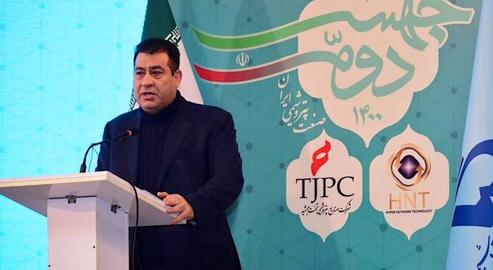The latest issue of the Iranian parliament’s official Parliament and Strategy quarterly includes an article on so-called “vigilante groups” in Iran. Entitled Developing an Appropriate Model for the Role of Pressure Groups in Shaping Iran's Public Policy, it examines the role of “vigilantes” in shaping decision-making by the Iranian government.
The study comes hot on the heels of another in a similar vein published by the Iranian judiciary-affiliated quarterly Excellence in Law. The thrust of the argument was that public opinion has become a key variable in shaping the decisions made by Iran’s criminal courts, and that some judges had exhibited clear “people-pleasing” behavior when dealing with incidents of crime and disorder.
The new piece for the Iranian parliament features the results of an 18-month survey involving 22 former and serving MPs. It concludes that so-called vigilantes “have directly lobbied the legislative branch and other branches of power, and [have lobbied] through the excitement and mobilization of public opinion, propaganda, mass media, and pressure on parliamentarians and policymakers."
Who are the ‘Vigilantes’?
The study defines “vigilantes” as "groups that seek to influence the government and parliament from outside, have political goals, and seek to influence the law." This opaque definition was followed by no clear examples, nor any case study in which a named pressure group could be said to have influenced the policies of the Islamic Republic.
At the same time, the study states that such groups might be of use to the regime: "If the political system can organize these groups, it could potentially use them to formulate, implement, and properly evaluate public policy."
The article stated that a variety of factors play a role in the formation and survival of “vigilante” groups: ethnic and racial difference, various religious minorities and sects, and the uneven distribution of resources such as oil and gas reserves, Iran’s mining and petrochemical industries, water resources and farmland. This “diversity”, it declared, “has caused social divisions, differences and disagreements on social, economic and political issues and has ultimately led to the formation of vigilante groups in Iranian society.” The strength of their demands to the government and parliamentarians, it added, were sometimes exacerbated by “the country’s legal problems” and “biased policy-making by MPs” as well as not being afforded a budget of their own.
Iran’s Biggest ‘Vigilante Groups’ Not Mentioned
The study refused to introduce as a case study even the most important and powerful non-state pressure group in Iran, Hezbollah, the demands whose members and supporters have been pandered to by the Islamic Republic for more than 40 years. In all cases, public policy in Iran that aligns with the desires of Hezbollah and its affiliates in the region are presented as a response to “the demands of the [Iranian] people”.
Extremist factions influenced and promoted by Hezbollah have long been able to rally and exert pressure on Iranian government officials. In return, overseas, they operate as effective proxies of the Islamic Republic.
Then there are the “insider” groups: parastatal, ideology-driven and militarily powerful bodies such as the Islamic Revolutionary Guard Corps and the Basij, who recruit in schools, mosques, and countless religious and governmental institutions all over the country despite not having an official role in the government. These unaccountable bodies have, at numerous points in the history of the Islamic Republic, effectively countered the policies the elected government had a mandate to implement
Vigilantes, or Just Not Following Hezbollah’s Line?
The Iranian parliament-endorsed study tried valiantly to give a glimpse into the conditions and contexts of the formation of different pressure groups and social, cultural and political movements in Iran, in which the government was not the main player. But it appeared to only examine those whose desires were not in step with those of the Shia clergy.
In a bid to counter these groups’ activities, the Islamic Republic has tried to entrench its own civil society institutions over many years. But because these invariably fail to provide for most Iranians or are out of step with what the public need, alternative pressure groups have always resurfaced. This has led to public clashes and the suppression of civic-oriented organizations, as happened with relief organization the Imam Ali Society.
The existence of public-spirited organization with different priorities to the regime, who operate independently of government, has always been a worry for the Islamic Republic. By painting legitimate pressure groups as vigilantes, the latest “study” issuing forth from the conservative-dominated parliament served only to underscore this deepening insecurity.
Related coverage:
The Relief Organization that has Angered the Revolutionary Guards
Why Can’t Civil Society Groups Function in Iran?
Iranian NGOs Take Over the Fight Against Coronavirus
Top Sociologist Barred from Leaving Iran: My Covid-19 Book Upset the Regime
How a Textbook in Iran Portrays Minorities and Identity
IRGC Journal: Blame Earthquakes, Ethnic Tension and Western Clothes for Khuzestan Unrest
visit the accountability section
In this section of Iran Wire, you can contact the officials and launch your campaign for various problems























comments